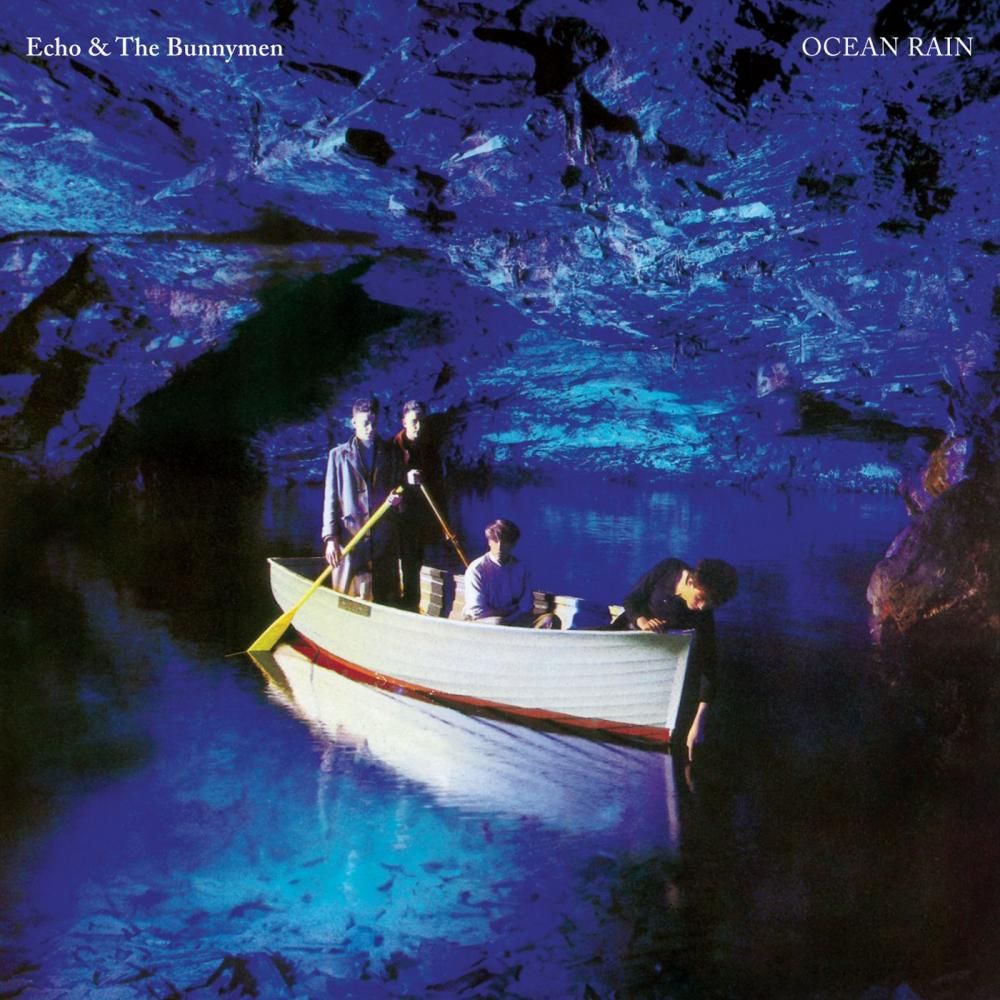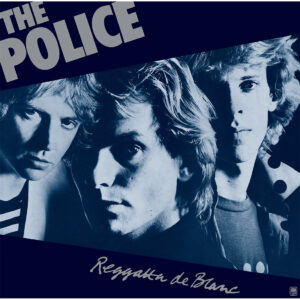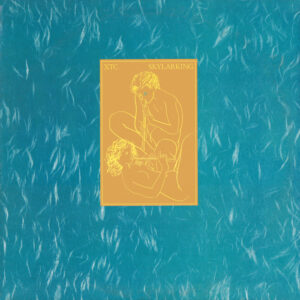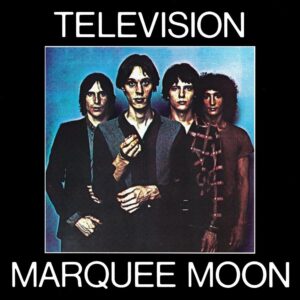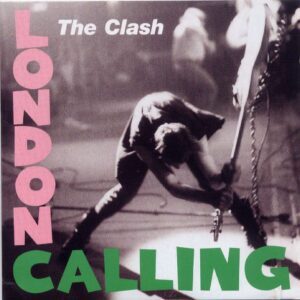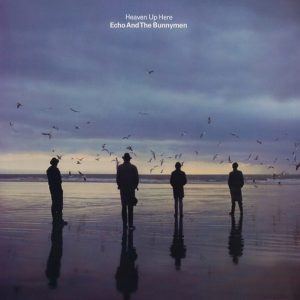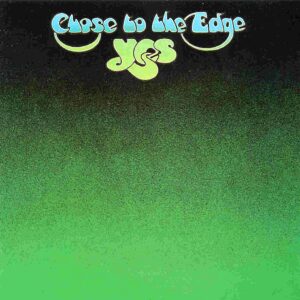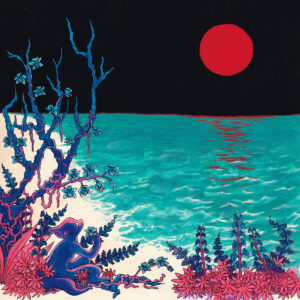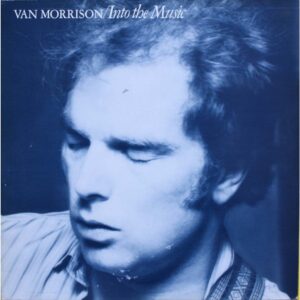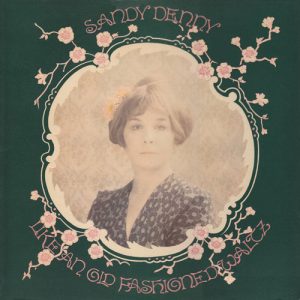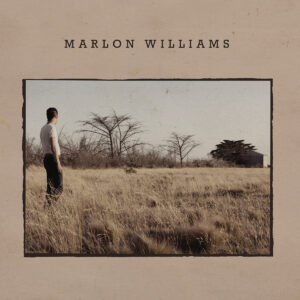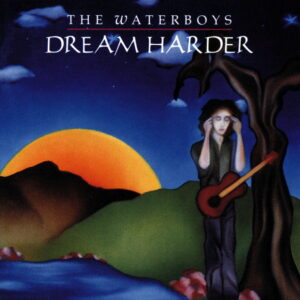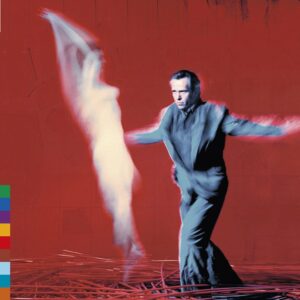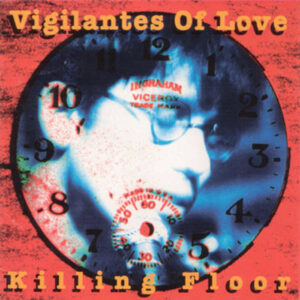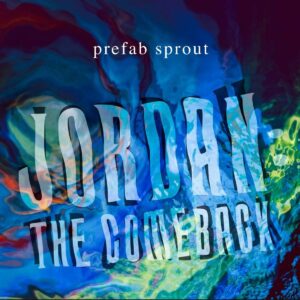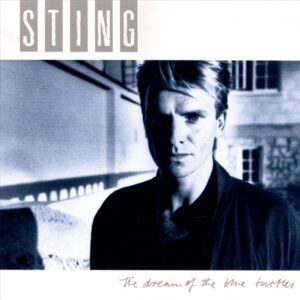
Echo & the Bunnymen vocalist Ian McCulloch started his career in the humbly named Crucial Three, alongside Julian Cope and Pete Wylie. As the Crucial Three morphed into The Teardrop Explodes, McCulloch formed a new band with guitarist Will Sergeant, bassist Les Pattinson, and a drum machine. After the 1979 single ‘The Pictures on My Wall’, the drum machine was replaced by Pete de Freitas.
Echo and the Bunnymen’s early records occupy an intersection between the post-punk intensity of Joy Division and the psychedelic poetry of The Doors. In their early career they were pitched as rivals to another Joy Division influenced band, U2. While the group’s early career trajectories were similar, U2’s career hit the stratosphere with 1987’s The Joshua Tree while Echo & the Bunnymen stalled. Their fifth album, 1987’s Echo and the Bunnymen, sold well in the US but still failed to capitalise on their career momentum; McCulloch quit while Pete de Freitas died in a 1989 motorcycle crash. The band later reformed, and McCulloch and Sergeant have continued releasing albums together as Echo & the Bunnymen.
On their early albums, Echo & the Bunnymen’s faster songs are often more enjoyable than their slow ones. Their fast tracks capture the intensity of post-punk, showcasing their fluid and creative rhythm section and Sergeant’s psychedelic guitar playing, which often dabbled with eastern scales. McCulloch’s vocals are more inconsistent – sometimes his rich and powerful voice is compelling, but sometimes his lyrics are faintly ridiculous. The consensus is that Echo and the Bunnymen peaked with their fourth album, 1984’s Ocean Rain – the orchestration helps their slower songs to captivate.
I’ve only covered their early albums, but Echo & the Bunnymen are an excellent post-punk act, arguably the second-best band to emerge from Liverpool.
I spend all my time doing things that may be a bit tangential, but I think I’m going to go back to the core, the heart music. Echo and the Bunnymen.
Billy Corgan, 1994
Echo & the Bunnymen Album Reviews
Crocodiles | Heaven Up Here | Porcupine | Ocean Rain | Echo & The Bunnymen | Evergreen | What Are You Going To Do With Your Life? | Flowers | Siberia | The Fountain | Meteorites | The Stars, The Oceans & The Moon
Crocodiles

1980, 7.5/10
Echo & the Bunnymen’s debut album followed the singles ‘Pictures on my Wall’ and ‘Rescue’, which are both showcased here. There’s an obvious debt to Joy Division, but the band’s sharp playing is a joy – Sergeant’s dark and moody guitar is as idiosyncratic as his anti-hero contemporaries The Edge and Johnny Marr.
‘Stars are Stars’ marries pretty psychedelia to pulsing post-punk; “stars are stars and they shine so hard” is one of McCulloch’s most memorable lines. ‘Rescue’ has pretty guitar arpeggios and vocal harmonies; it’s warm and melodic compared to most of the band’s work. McCulloch’s paranoia and rich voice fuels ‘Villiers Terrace’; McCulloch revealed in 1994 “I had nicked it slightly from Dylan, but it was actually about Hitler throwing a wobbler and chewing the carpet, although the song obviously hinted at drugs.”
Echo & the Bunnymen would release stronger records – the chaotic ‘Happy Death Man’ is a weak closing track – but the key components of the band are already in place on Crocodiles.
Heaven Up Here

1981, 8/10
Heaven Up Here broke Echo & the Bunnymen into the UK top 10. It captures a grandiose sound, particularly in the majestic opening tracks, and Sergeant shines with many creative guitar parts. The band’s cover artwork is on point too – all of their early record sleeves are excellent, but the shot of the band on the beach in the Welsh town of Porthcawl is particularly iconic.
The run of opening tracks is magnificent – ‘Show of Strength’ builds intensity before turning on a great Sergeant guitar riff. Pattinson’s bass line holds together ‘With A Hip’ while Sergeant cycles through an array of clever guitar parts. ‘Over The Wall’ takes a long time to get to its focal point, and it’s a great synopsis of the band’s strengths; McCulloch’s intensity is mirrored by the band’s tight, creative playing. The sunnier single ‘A Promise’ provides a respite from the intense opening sequence, built around a sunny jangle. The second side is less memorable, but ‘All My Colours’ achieves a hypnotic effect with McCulloch’s “zimbo, zimbo” hook and de Freitas’ tribal rhythms.
Of Echo and the Bunnymen’s first four albums, Heaven Up Here is the only one not to feature on 1001 Albums You Must Hear Before You Die, but it’s one of their best.
Porcupine

1983, 7/10
The difficult second album is a rock cliche, but it was Echo & the Bunnymen’s third album that endured a tortured genesis. De Freitas later said that “this one was like we had to drag it out of ourselves.” When the band presented the completed album to their label, it was rejected as “too uncommercial”, and the band agreed to re-record it. The cover shot of the band by a frozen Iceland waterfall is a great visual image for the contents of Porcupine; it’s their coldest, most oppressive record.
The highlights on the insular Porcupine are the two singles at the beginning – ‘The Cutter’ features eastern strings from Shankar, expanding the band’s musical vocabulary and finding a beautiful middle ground between terse post-punk and 1960s psychedelia. ‘The Back of Love’ is punchy and urgent, with McCulloch’s impassioned vocal duelling with Sergeant’s pinging guitar for attention. The remainder of Porcupine is darker; pensive songs like the six minute title track, ‘Higher Hell’, and ‘Fuel’ set a dark tone, overshadowing the more upbeat tracks. ‘Clay’ features one of McCulloch’s most agreeably sonorous vocals, especially on the “When I came apart/I wasn’t made of sand” chorus.
Porcupine is the least accessible of Echo & the Bunnymen’s early records – with personal lyrics from McCulloch it’s likely to be a favourite for dedicated fans, but it’s not a good place for neophytes to start.
Ocean Rain

1984, 9.5/10
Strings worked well on ‘The Cutter’, and Echo & the Bunnymen continued to work with orchestration on ‘Ocean Rain’. Plastering on strings is sometimes a sign of a band slowing down and running out of ideas, but orchestration works for this band. Before their slow songs were often austere and uninviting – here they’re warm and melodic. Ocean Rain contains the band’s best-loved song, the haunting ‘The Killing Moon’, but it succeeds because it’s their most consistent. Ocean Rain was marketed as “the greatest album ever made”, following a quote from McCulloch.
Sometimes McCulloch’s lyrics are irritating – his rambling about “cu-cu-cu-cumbers” on ‘Thorn of Crowns’ is salvaged by some great guitar work from Sergeant, and his romantic couplets on ‘Nocturnal Me’ are embarrassing (“Oh, take me internally. Forever yours. Nocturnal me”). But musically, Ocean Rain is spectacular. Early tracks like ‘Silver’ and ‘Crystal’ are very strong, but the real action’s on the second side, one of the great side twos of the LP era. ‘The Killing Moon’ is the best-known song, but there’s also ‘Seven Seas’ and ‘My Kingdom’, two tracks that recall The Byrds, with jangly guitars and harmonies. ‘Ocean Rain’ is a gorgeous closer, with its brooding grandeur enhanced by the beautiful strings.
Ocean Rain was the culmination of four albums of hard work, Echo & the Bunnymen trading their icy introspection for string-soaked majesty.
Songs to Learn & Sing
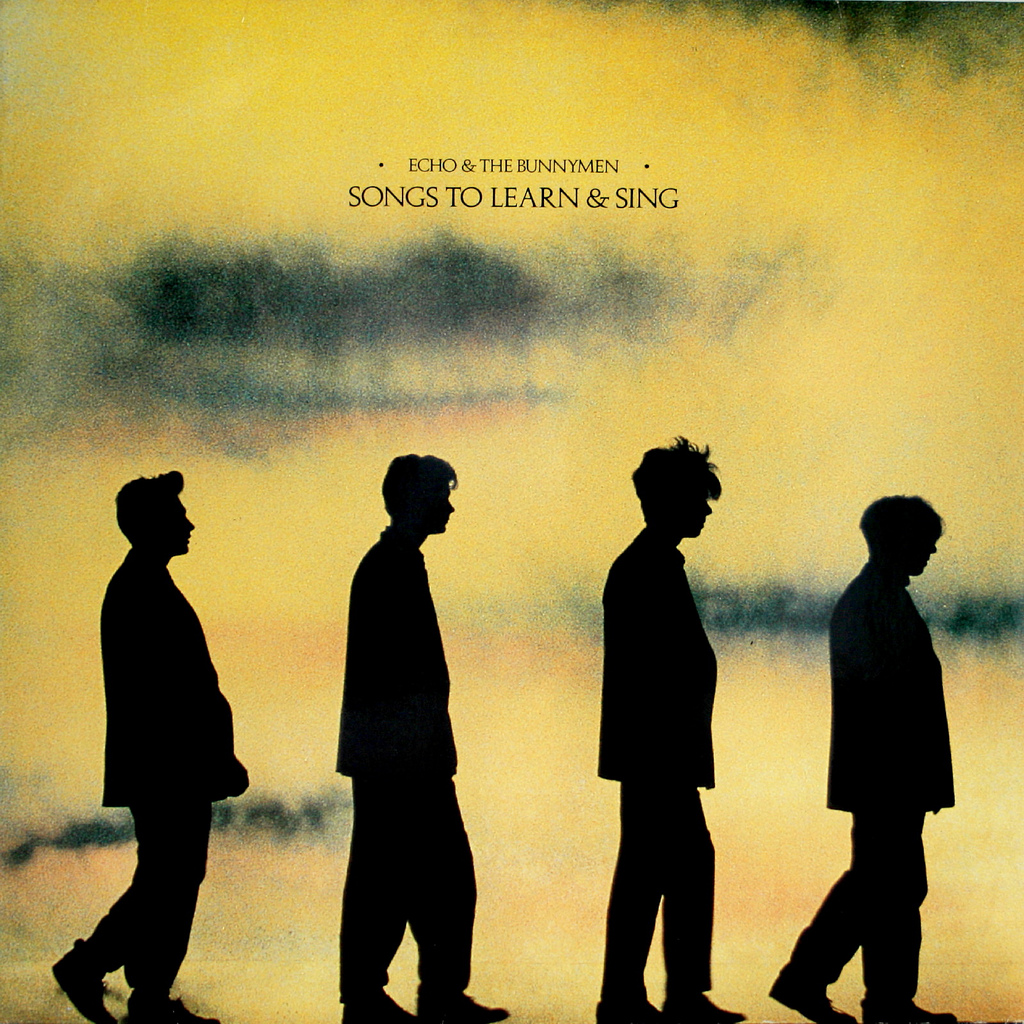
1985, not rated
Songs to Learn & Sing collects Echo & the Bunnymen’s singles through to 1985. It’s doesn’t grab enough of the band’s best tracks to be a good career summary, but it does include the non-album singles ‘The Puppet’, ‘Never Stop’, and ‘Bring on the Dancing Horses‘, a new song from the John Hughes’ film Pretty In Pink.
Echo & the Bunnymen

1987, 6/10
Echo & the Bunnymen was the band’s most successful record in the US, but it comes at a cost. The record features nice tunes, but its smooth production removes too much of the band’s mystique and intensity. The talented rhythm section is reduced to supporting roles; Pattinson’s bass is buried beneath keyboards, while the straightforward tunes don’t give de Freitas much to do.
With the smoother sound, Echo & the Bunnymen lose their identity; the otherwise lovely ‘Bomber’s Bay’ sounds too much like Simple Minds for comfort, while ‘Over You’ is reminiscent of The Psychedelic Furs. ‘Lips Like Sugar’ retains some of the band’s earlier mystique – Sergeant’s guitar work is angular, recalling the group’s post-punk roots. Sergeant also shows off his guitar chops at the end of ‘All In Your Mind’, but it’s less idiosyncratic than his earlier guitar work.
Echo & the Bunnymen was the last album to feature the band’s original lineup – de Freitas died in a motorcycle accident in 1989, and McCulloch quit before 1990’s Reverberation. The songs are adequate, but it doesn’t feel like a logical progression from the band’s previous records – it might have been better received under a different name.
Ten Best Echo & the Bunnymen Songs
The Killing Moon
Over The Wall
The Cutter
Show of Strength
Stars are Stars
The Back of Love
Ocean Rain
Villiers Terrace
All My Colours
My Kingdom
Return to Punk and New Wave Reviews
Related Pages
About
Aphoristic Album Reviews is almost entirely written by one person. It features album reviews and blog posts across a growing spectrum of popular music.
Review Pages
Read about the discographies of musical acts from the 1960s to the present day. Browse this site's review archives or enjoy these random selections:
Blog Posts
I add new blog posts to this website every week. Browse the archives or enjoy these random selections:
